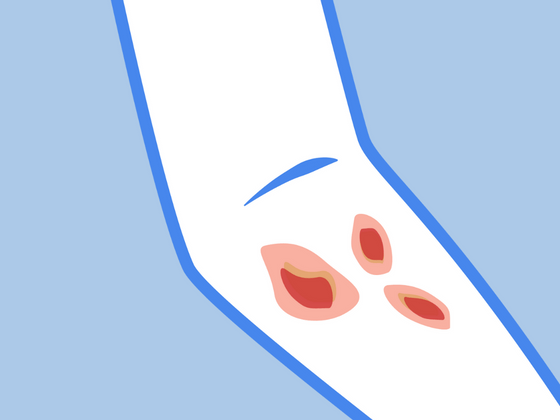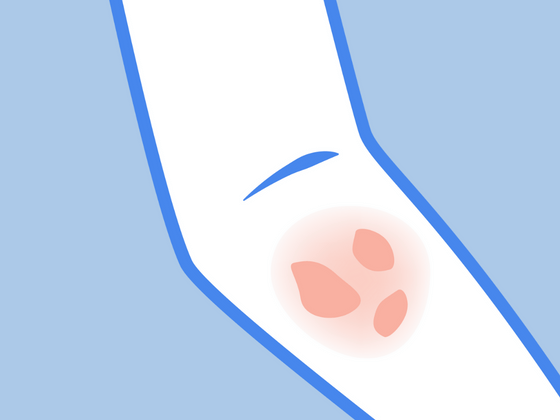Oily skin eczema, also known as seborrheic dermatitis when affecting oily areas, presents a unique set of challenges. This condition often affects areas with high oil gland activity, such as the T-zone, behind the ears, and the scalp. While eczema is generally associated with dry, itchy skin, oily skin can also experience flare-ups and discomfort. So, how can you manage oily skin eczema effectively and maintain healthy skin?
In this blog, we will explore the causes and treatment options for oily skin eczema, covering:
-
The relationship between oily skin and eczema
-
How to manage symptoms and reduce inflammation
-
Effective treatments and lifestyle changes for better skin health
Read on to understand how to address oily skin eczema, alleviate symptoms, and improve your overall skin condition.
Understanding Oily Skin Eczema
Oily skin eczema often involves seborrheic dermatitis, a common type of eczema that affects areas rich in oil glands. Unlike typical eczema, which may cause dry, flaky patches, seborrheic dermatitis can lead to oily, inflamed skin and acne breakouts. This condition is frequently seen in the T-zone (forehead, nose, and chin), behind the ears, and the scalp.
Causes and Triggers
Several factors contribute to oily skin eczema, including:
-
Overactive Oil Glands: Excess oil production can clog pores and contribute to inflammation and flare-ups.
-
Hormonal Changes: Fluctuations in hormones, such as during puberty or pregnancy, can exacerbate oily skin and eczema symptoms.
-
Stress: Emotional stress can trigger or worsen eczema symptoms, including those associated with oily skin.
-
Family History: A family history of eczema, atopic dermatitis, or related skin conditions can increase susceptibility to oily skin eczema.
Symptoms of Oily Skin Eczema
The symptoms of oily skin eczema can include:
-
Itchy and Red Skin: Inflammation and irritation often result in itchy, red patches.
-
Oiliness and Breakouts: Excess oil can lead to acne breakouts and exacerbate eczema symptoms.
-
Scalp Issues: Seborrheic dermatitis may cause dandruff and inflammation on the scalp.
-
Flaky Patches: Areas affected by eczema may exhibit flaky or greasy patches, particularly in the T-zone and behind the ears.
Effective Treatments for Oily Skin Eczema
Managing oily skin eczema involves a combination of skincare routines, lifestyle changes, and targeted treatments. Here are some strategies to consider:
Use Gentle Cleansers
Opt for mild, non-irritating cleansers that remove excess oil without stripping the skin barrier. Products containing salicylic acid can help manage oil production and prevent clogged pores. Specialized eczema soap can be particularly beneficial for managing symptoms. Opt for mild, non-irritating cleansers that remove excess oil without stripping the skin barrier. The Emily Liquid Soap Soother Shampoo is a gentle option designed for eczema-prone skin. While its primary role is to cleanse and soothe, it helps to balance oil levels and maintain the skin’s natural moisture without causing irritation.
Incorporate Moisturizing
Even oily skin needs moisture to maintain its health and barrier function. Use lightweight, non-comedogenic moisturizers that hydrate without exacerbating oiliness. Consider natural options like beef tallow cream, which provides gentle hydration for sensitive skin types. The Organic Manuka Honey Skin Soothing Cream is an excellent choice, as it provides hydration while leveraging the soothing properties of manuka honey to help calm inflamed skin.
Avoid Harsh Products
Steer clear of skincare products with harsh chemicals or heavy oils that can irritate sensitive skin and trigger eczema flare-ups. This extends to choosing the right detergent for sensitive skin to avoid contact irritation. The Grass-Fed Tallow Soap is a gentle alternative, free from synthetic additives and crafted to support sensitive skin by avoiding harsh irritants.
Manage Stress
Incorporate stress-reducing activities into your routine, such as meditation, exercise, or hobbies, to help minimize the impact of stress on your skin.
Regular Skin Care Routine
Establish a consistent skincare routine that includes gentle cleansing and moisturizing. Avoid over-washing, as this can strip the skin and worsen symptoms.
Lifestyle and Dietary Considerations
In addition to topical treatments, lifestyle and dietary changes can support better skin health:
Maintain a Healthy Diet
Incorporate a balanced diet rich in omega-3 fatty acids, antioxidants, and vitamins to support skin health. Foods like fatty fish, leafy greens, and nuts can be beneficial.
Stay Hydrated
Drink plenty of water to help maintain skin hydration and support overall health.
Avoid Triggers
Identify and avoid potential triggers that may worsen your eczema, such as certain foods or environmental factors.
Consult a Dermatologist
If you experience severe or persistent symptoms, consult a dermatologist for a personalized treatment plan. They can provide guidance on managing oily skin eczema and recommend appropriate treatments tailored to your specific needs, including prescription or natural eczema cream options.
Address Oily Skin Eczema Effectively
Follow these tips to manage oily skin eczema, alleviate symptoms, and improve your skin health. By incorporating the right treatments and lifestyle changes, you can effectively control oily skin eczema and maintain a healthier, more comfortable complexion.








